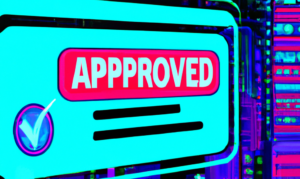When in the market for a new purchase loan or to refinance your mortgage, you must send your new lender several documents used to qualify your application and underwrite your loan. Begin gathering these documents early in your application process to avoid delays in getting approved.
Below is a list of the most common documents required to qualify for a mortgage:
Credit Report
With your permission, the lender will pull a “tri-merge” credit report. A tri-merge report pulls your credit report from all three credit bureaus (Experian, Equifax and Transunion), then merges this data together to form one single comprehensive credit report.
The credit report will contain the following information most important to the lender:
- History of past and current debts and payment obligations
- Three FICO scores from each of the three credit bureaus
- Any bankruptcies, late payments, collection accounts and/or public records you may have
Purchase Agreement Signed by all Parties
Applying for a purchase loan will require sending a copy of the Residential Purchase Agreement signed by all parties involved in the transaction to the new mortgage lender. This must be the final purchase agreement that your purchase is based upon. The buyer’s real estate agent has a copy of the purchase agreement.
Two Years of Federal Tax Returns
Mortgage lenders require the most recent two years of your federal tax returns, and a signed IRS Form 4506-T which authorizes the IRS to release only required information pertaining to your income.
For business owners applying for a mortgage, the lender may also request current Income Statements and Balance Sheets for the business.
W-2’s
Two most recent years of W-2’s (if applicable) are required by the majority of lenders. For lost copies, applicants should ask their employers Human Resources department for copies.
1099’s
Two most recent years 1099’s (if applicable) will be required by the lender. 1099’s are typically issued to people who work independently, such as real estate agents, dentists or sales reps. The party that pays you is required to send you and the IRS a 1099 declaring how much you’ve been paid.
Paycheck Copies/Stubs
Paycheck copies/stubs (if applicable) for the most recent two pay periods will be required by the new lender. The may require another recent paycheck stub copy prior closing and funding the new mortgage to ensure the applicants income has not changed.
Additional Income
When applicants receive additional income from other sources, such as from child support, alimony, separate maintenance, social security, or disability, they should supply the new lender official documents proving the source of the income. This is only required if and when these income sources are used to qualify for the new loan. An award or benefits letter outlines what amount is being received by the applicant and the duration of the income.
Bank Account Statements
Complete copies of bank account statements from the two most recent months from all bank accounts of the applicants will be required to show the lender there are anywhere from 3 – 7 months of new mortgage payment reserves available. Some lenders may not require any or may require more than 7 months of reserves. The need for this is based on underwriting review.
Any investment accounts, such as 401Ks and IRAs may also be given to the lender if necessary, to qualify for the new mortgage.
Social Security Card
Lenders may require a copy of the applicant’s social security card, or they may ask for copies of a document that contains the social security number, such as a W-2, income tax return or letters from the Social Security Administration.
Homeowners Insurance Proof
Lenders need to know that the home being purchased or refinanced is insured and has sufficient coverage in case of damage from disaster to replace the dwellings. For new purchase loans and refinances, the lender will want to see the policy’s declarations page, which shows the annual payment and the amount of coverage on the home.
Mortgage Statement
The lender may ask for a copy of a recent mortgage statement from one or all of the applicants’ properties (if applicable). Mortgage lenders will use the information from the mortgage statement to verify rate, payment, and balance information.
Applying for a Mortgage Has A lot to Do with Proof
Documentation provided to lenders are used to prove the information provided by applicants. For example, if an applicant states they make $8,000 per month, this must be quantified with supporting documentation such as paycheck stubs, tax returns and other income documentation. If the supporting documents don’t equal $8,000 per month in income as stated, then the applicant will be re-qualified based on whatever income amount that can be proven. This may significantly change loan terms, or even disqualify applicant for the loan all together if the true income is far below the stated income.






